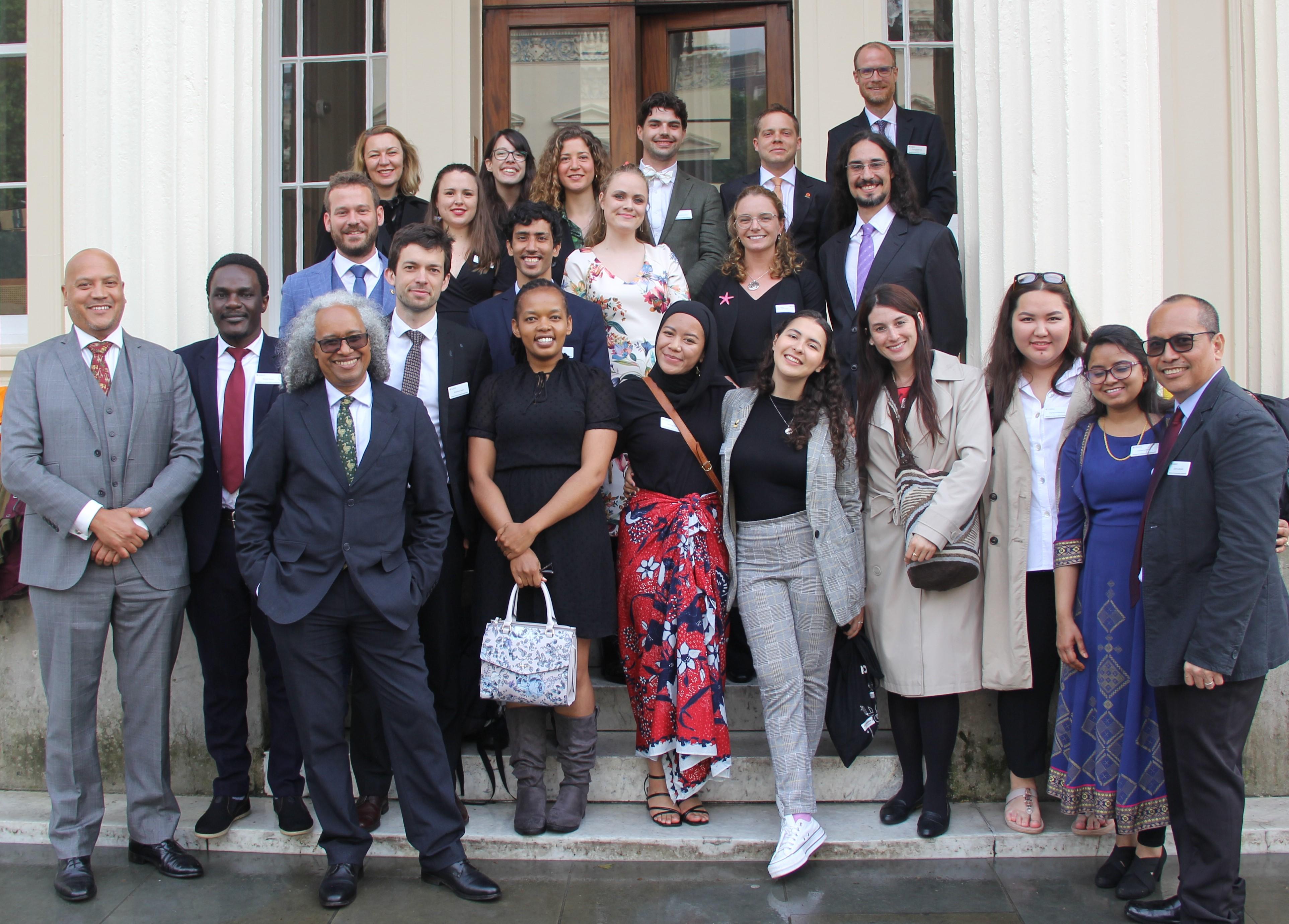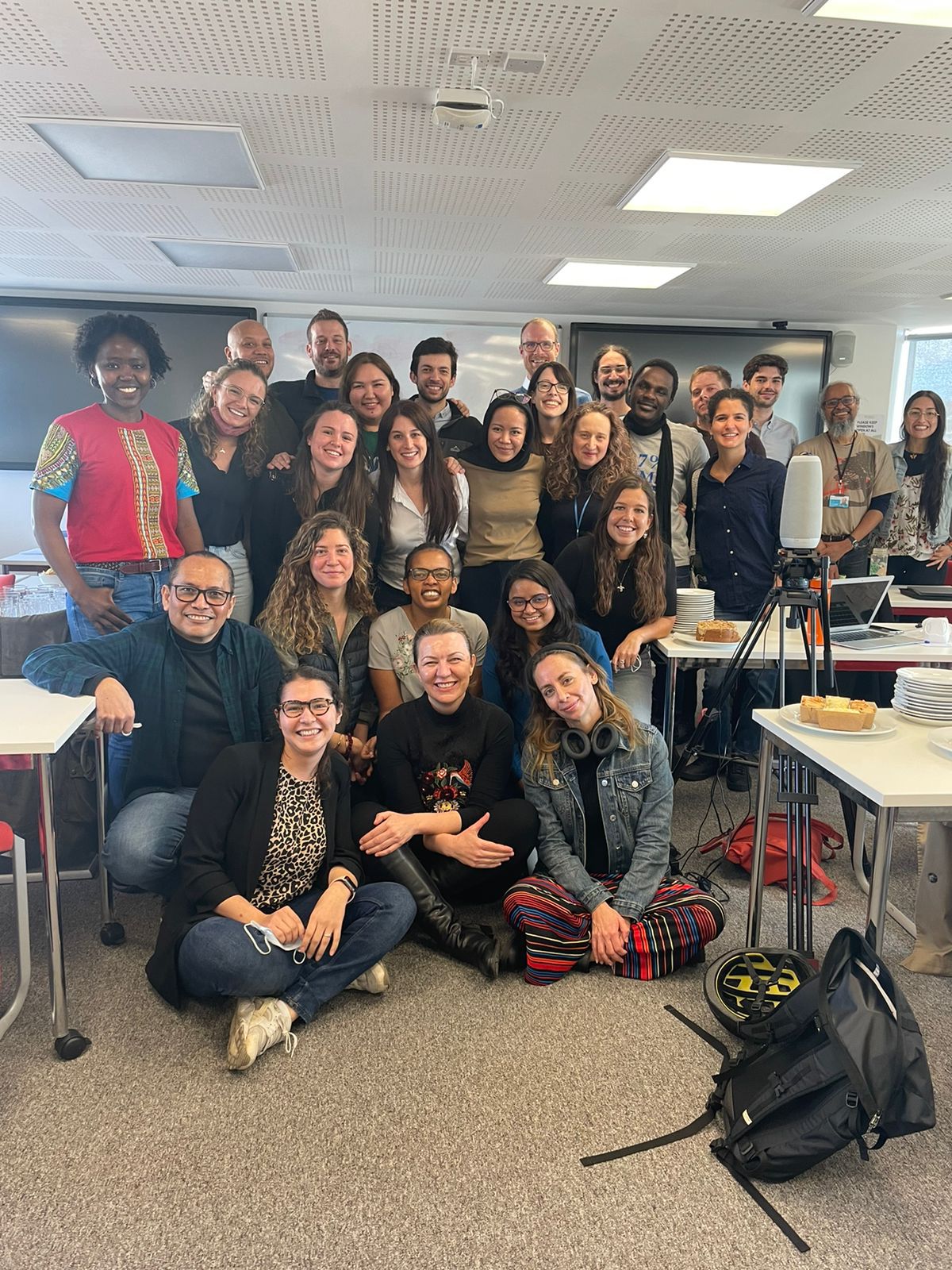
Student experience: Fariza Adilbekova (2021-22)
Fariza Adilbekova from the 21-22 cohort answers some questions to give you first-hand experience on what it was like to take the Masters in Conservation Leadership.
Cohort life
I was lucky to be a part of a diverse cohort of 21 people from 19 countries, where everyone had immense experience in conservation in their home countries and around the world. Every day, we had the opportunity to learn not only from our professors and lecturers but also from each other, spending hours discussing various topics, often debating, and, as a result, looking at the same conservation matters from different perspectives and understanding their complexity. Moreover, the Master's programme helped me to make friends for life – outside of my studies, we spent time cooking, picnicking in Grantchester, having music and salsa nights, attending a few formal dinners at the colleges of fellow coursemates, and much more.
Studying in the David Attenborough Building (DAB)
One of the significant benefits of the Master's programme was that it is housed in the David Attenborough Building, giving students a unique opportunity for networking with conservation professionals working in Cambridge Conservation Initiative organisations. As everyone was so friendly and open to communication, it was quite easy to start a conversation over a cup of coffee or tea. After graduation, I have kept in touch with many of the people I met in the DAB, and we often see each other at conservation-related conferences and meetings.
Course structure
The Master's programme has a dynamic and engaging course structure starting with lectures and assignments in Michaelmas and Lent terms, followed by the professional placement in Easter term. Our lectures often went overtime as we were curious to learn more about the conservation leadership challenges our lecturers faced and their first-hand experience, as they were leading professionals in their fields. The professional placement gave us the opportunity to put the knowledge gained throughout the first two terms and beyond into practice on a topic of interest. This experience helped me to further strengthen my self-discipline, as I needed to design the research, travel to Kazakhstan, Kyrgyzstan, and Uzbekistan for data collection, and write a report within four months. Though it was challenging, it was satisfying to see the result of my efforts.
Things you got that you never expected?
The Master's programme exceeded any expectation I had – it was a life-changing experience that helped me to grow professionally and personally and gain more confidence to further advance in the field I am passionate about. In addition to academic skills, the programme helped me to strengthen my soft skills, such as communication and adaptability, during its events, field visits, Conservation Leadership Dinners, etc.
I am very grateful for the generous support of the Whitbread Scholarship in Conservation Leadership for making my dream come true!
Life after graduation
Currently, I am working as an Associate Programme Management Officer at the Secretariat of the Convention on Migratory Species (UNEP/CMS), focusing on projects in Central Asia, where I can apply the knowledge and skills gained throughout the Master's programme. I am still in touch with my cohort – it is fascinating to see the amazing work my fellow conservation leaders are doing to make the planet a better place! We often meet in different parts of the world, but also in Cambridge, which became our second home thanks to the programme.

